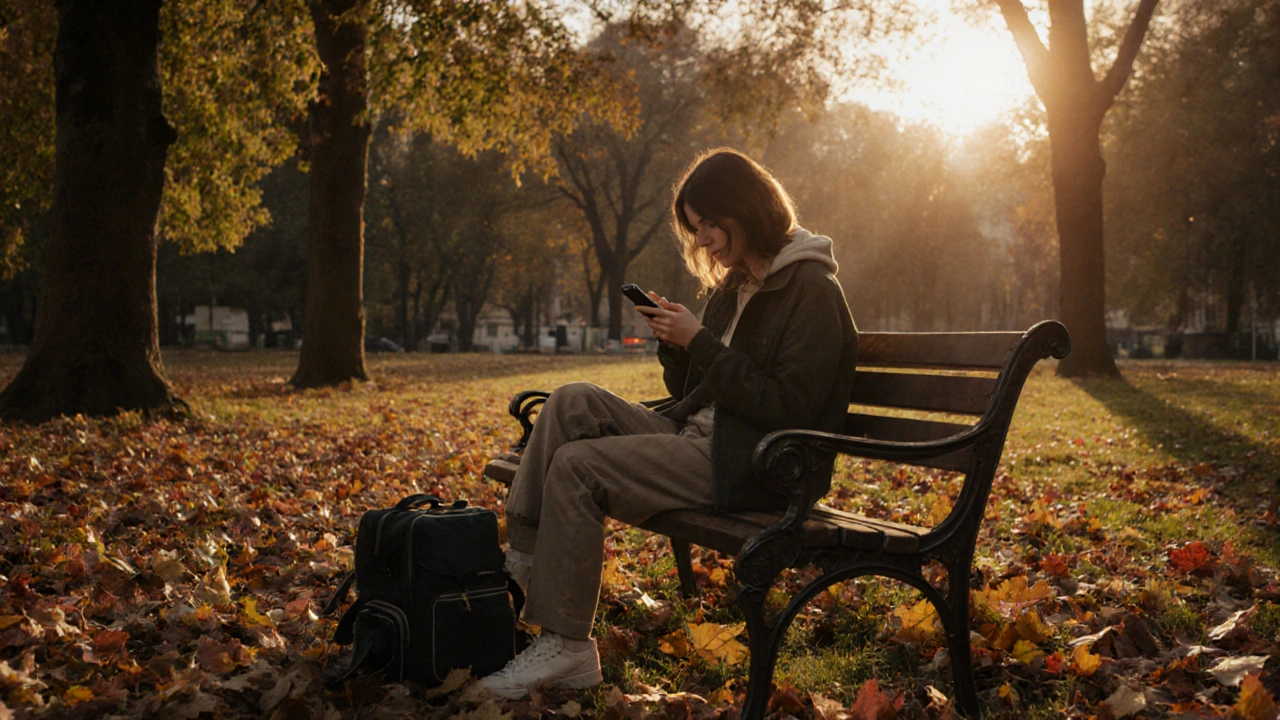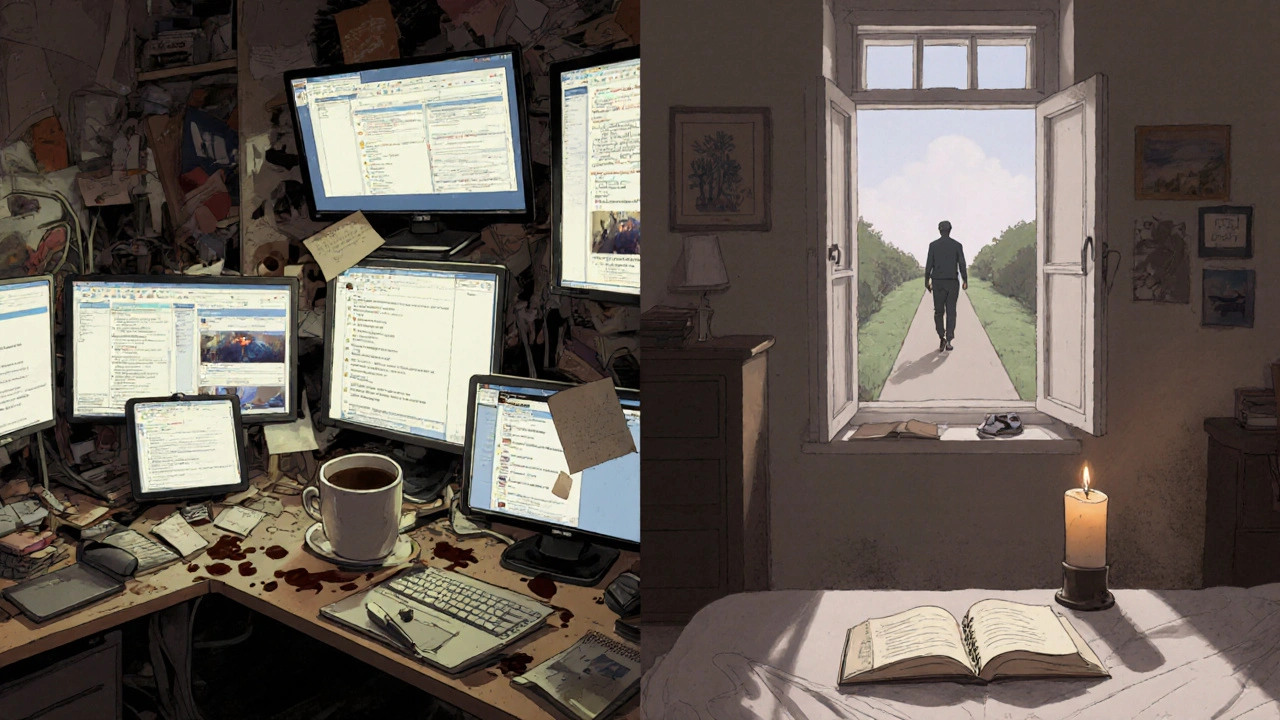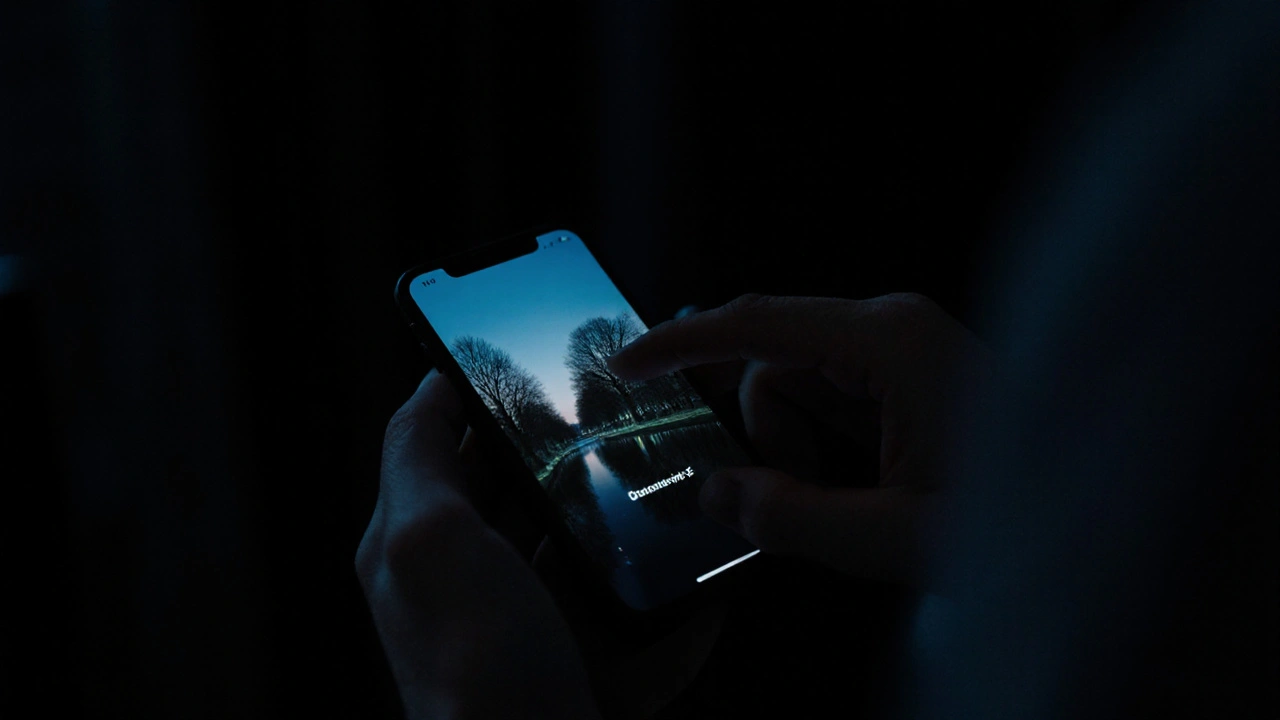
London’s creative scene is booming. From rooftop Instagram photoshoots in Shoreditch to TikTok dance trends filmed in Camden, the city is a magnet for content creators. But behind the polished feeds and viral clips, a quiet crisis is growing. Creator burnout isn’t just a buzzword-it’s a daily reality for thousands of influencers, photographers, and digital artists who’ve turned passion into a 24/7 job.
Why London Creators Are Hitting Their Limits
It starts with the pressure to post. A 2024 survey by the Creative Industries Federation found that 68% of London-based creators work more than 50 hours a week, with 42% saying they feel guilty for taking a day off. Unlike traditional jobs, there’s no clock-out time. Your phone is your office. Your bedroom is your studio. Your social media DMs? That’s your inbox-and it never stops ringing.
And it’s not just the hours. It’s the performance. Every post is a test. Every story is a metric. Every comment is a verdict. One creator, Maya R., a fashion influencer with 180K followers, told me: "I used to love posting. Now I stare at my camera for 20 minutes before I even take a photo, wondering if it’ll get enough likes to justify the time."
London’s cost of living makes it worse. Rent in areas like Hackney or Notting Hill eats up half of most creators’ income. Many juggle three gigs: sponsored content, freelance design, and part-time retail just to keep their lights on. The result? Chronic stress, sleep loss, and a growing number of creators reporting anxiety and depression.
The Myth of the "Hustle Culture" Creator
For years, the narrative was simple: grind harder, post more, grow faster. Brands pushed it. Algorithms rewarded it. Even well-meaning mentors told creators to "just be consistent." But consistency without rest isn’t sustainability-it’s self-destruction.
The truth? The most successful creators today aren’t the ones posting five times a day. They’re the ones who’ve learned to say no. To client requests. To trend-chasing. To the pressure to be "always on."
Take Jamal K., a London-based photographer who used to shoot weddings, do brand campaigns, and run a YouTube channel-all at once. He hit a wall last spring. Panic attacks. Weight loss. He stopped posting for three months. When he came back, he didn’t post more. He posted less. But better. He now books only two brand deals a month. He takes Wednesdays off. He doesn’t answer emails after 8 p.m. His income? Up 30%. His peace of mind? Unmeasurable.
How London Creators Are Setting Real Boundaries
More and more creators in the city are building systems-not just content. Here’s what’s working:
- Time-blocking for mental space: Some use Google Calendar to block "do not disturb" hours, even on weekends. One group of London creators calls it "Creator Sundays"-no screens, no emails, just walks in Richmond Park.
- Automating the grind: Tools like Buffer and Later let creators schedule posts in advance. No more late-night Instagram updates. No more checking analytics at 2 a.m.
- Declining "free exposure" offers: Brands still ask creators to work for "exposure." More are saying no. A new collective called "Fair Pay London" has helped over 300 creators negotiate flat fees instead of "product gifting."
- Therapy and peer groups: There are now six dedicated therapy groups in London for digital creators, run by licensed counselors who understand the unique pressures of online visibility. One, called "Behind the Feed," meets weekly in a quiet library in Bloomsbury.
It’s not about quitting. It’s about redefining success. Success isn’t 100K followers. It’s waking up without dread. It’s saying "I’m not available today" and feeling okay about it.

The Role of Platforms and Brands
Platforms can’t fix this alone-but they’re starting to try. Instagram quietly rolled out a "Digital Wellbeing" dashboard for UK creators in early 2025, showing daily time spent posting, commenting, and scrolling. TikTok now lets users set "Creator Quiet Hours" to mute notifications between 10 p.m. and 7 a.m.
Brands are catching on too. A handful of London-based agencies now include "mental health clauses" in contracts. One, The Creative Pact, requires clients to give creators at least 48 hours’ notice before a shoot and to pay overtime if a project runs longer than agreed. Another refuses to work with any creator who hasn’t taken a full week off in the past six months.
It’s still rare. But it’s growing.
What Happens When You Don’t Reset
There’s a cost to ignoring burnout. Some creators quit entirely. One popular London food blogger, who had 400K followers, deleted her accounts in June 2025. Her final post read: "I miss eating without thinking about lighting. I miss sleeping without checking my phone. I miss being me."
Others spiral into financial chaos. Without boundaries, burnout leads to mistakes: missed deadlines, botched shoots, canceled collabs. And when you’re freelance, one mistake can mean no rent next month.
And then there’s the loneliness. Many creators feel isolated-even with millions of followers. They don’t talk about it because they think everyone else has it figured out. But they don’t. Not really.

Where to Start: A Simple Plan for London Creators
You don’t need a full lifestyle overhaul. Just one change. Here’s how to begin:
- Track your time for one week. Use your phone’s screen time feature. Be honest. How many hours are you spending creating, editing, and scrolling?
- Choose one boundary to protect. No emails after 7 p.m.? No posting on Sundays? No accepting gigs under £150? Pick one and stick to it for 30 days.
- Find one person to talk to. It could be a fellow creator, a therapist, or even a friend who doesn’t know your work. Just say: "I’m tired. I need to talk."
- Cancel one thing. One client. One platform. One obligation that drains you. Say no. See what happens.
It’s not about becoming less productive. It’s about becoming more human.
London’s Creative Future Isn’t About More-It’s About Enough
The city will always need creators. The art, the stories, the culture-they’re vital. But they shouldn’t come at the cost of your health.
The next generation of London creators won’t be the ones who posted the most. They’ll be the ones who stayed. Who showed up, consistently, without burning out. Who built businesses that lasted-not just trends that went viral.
Boundaries aren’t a luxury. They’re the foundation. And for every creator in this city who’s tired, exhausted, or just done-they’re not failing. They’re waking up.
What are the signs of creator burnout in London?
Signs include constant exhaustion, loss of motivation to create, anxiety before posting, feeling guilty for taking breaks, sleep problems, and physical symptoms like headaches or stomach issues. Many also feel disconnected from their own work, as if they’re just going through the motions.
Can I still grow my audience if I set boundaries?
Yes. In fact, creators who set boundaries often grow more sustainably. Audiences notice authenticity. When you post less but with more intention, engagement tends to rise. Quality beats quantity every time, especially when your content feels real, not forced.
How do I say no to a brand without losing opportunities?
Be clear, polite, and professional. Try: "I appreciate the offer, but I’m currently only taking on projects that align with my current capacity and rate. I’d love to reconnect in a few months." Most brands respect boundaries when they’re stated confidently. The ones who don’t? You don’t need them.
Are there free mental health resources for creators in London?
Yes. The Creative Mental Health Network offers free monthly group sessions across London, including in Peckham, Brixton, and Camden. Some NHS clinics also have sliding-scale therapy slots for freelancers. Check Creative UK’s website for updated listings.
Is creator burnout unique to London?
No-but London’s fast pace, high cost of living, and dense creative community make it especially intense. The pressure to keep up with trends, maintain visibility, and compete for limited brand deals is amplified here. But the solutions-boundaries, rest, community-are universal.
Next Steps for Creators Feeling Overwhelmed
If you’re reading this and feeling seen, start small. Block out one hour this week just for you. No camera. No phone. Just silence. Walk. Sit. Breathe.
Reach out to one other creator. Send a DM. Say: "I’m struggling. Are you?" You might be surprised how many say yes.
And remember: your worth isn’t in your follower count. It’s in your ability to keep going-on your own terms.